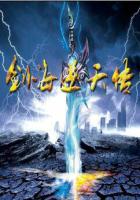And once the change was made Cowperwood was convinced that this new work was more suited to him in every way--as easy and more profitable, of course. In the first place, the firm of Tighe & Co., unlike that of Waterman & Co., was located in a handsome green-gray stone building at 66 South Third Street, in what was then, and for a number of years afterward, the heart of the financial district. Great institutions of national and international import and repute were near at hand--Drexel & Co., Edward Clark & Co., the Third National Bank, the First National Bank, the Stock Exchange, and similar institutions. Almost a score of smaller banks and brokerage firms were also in the vicinity. Edward Tighe, the head and brains of this concern, was a Boston Irishman, the son of an immigrant who had flourished and done well in that conservative city. He had come to Philadelphia to interest himself in the speculative life there. "Sure, it's a right good place for those of us who are awake," he told his friends, with a slight Irish accent, and he considered himself very much awake. He was a medium-tall man, not very stout, slightly and prematurely gray, and with a manner which was as lively and good-natured as it was combative and self-reliant. His upper lip was ornamented by a short, gray mustache.
"May heaven preserve me," he said, not long after he came there, "these Pennsylvanians never pay for anything they can issue bonds for." It was the period when Pennsylvania's credit, and for that matter Philadelphia's, was very bad in spite of its great wealth.
"If there's ever a war there'll be battalions of Pennsylvanians marching around offering notes for their meals. If I could just live long enough I could get rich buyin' up Pennsylvania notes and bonds. I think they'll pay some time; but, my God, they're mortal slow! I'll be dead before the State government will ever catch up on the interest they owe me now."
It was true. The condition of the finances of the state and city was most reprehensible. Both State and city were rich enough; but there were so many schemes for looting the treasury in both instances that when any new work had to be undertaken bonds were necessarily issued to raise the money. These bonds, or warrants, as they were called, pledged interest at six per cent.; but when the interest fell due, instead of paying it, the city or State treasurer, as the case might be, stamped the same with the date of presentation, and the warrant then bore interest for not only its original face value, but the amount then due in interest. In other words, it was being slowly compounded. But this did not help the man who wanted to raise money, for as security they could not be hypothecated for more than seventy per cent. of their market value, and they were not selling at par, but at ninety. A man might buy or accept them in foreclosure, but he had a long wait. Also, in the final payment of most of them favoritism ruled, for it was only when the treasurer knew that certain warrants were in the hands of "a friend" that he would advertise that such and such warrants--those particular ones that he knew about--would be paid.
What was more, the money system of the United States was only then beginning slowly to emerge from something approximating chaos to something more nearly approaching order. The United States Bank, of which Nicholas Biddle was the progenitor, had gone completely in 1841, and the United States Treasury with its subtreasury system had come in 1846; but still there were many, many wildcat banks, sufficient in number to make the average exchange-counter broker a walking encyclopedia of solvent and insolvent institutions.
Still, things were slowly improving, for the telegraph had facilitated stock-market quotations, not only between New York, Boston, and Philadelphia, but between a local broker's office in Philadelphia and his stock exchange. In other words, the short private wire had been introduced. Communication was quicker and freer, and daily grew better.
Railroads had been built to the South, East, North, and West.
There was as yet no stock-ticker and no telephone, and the clearing-house had only recently been thought of in New York, and had not yet been introduced in Philadelphia. Instead of a clearing-house service, messengers ran daily between banks and brokerage firms, balancing accounts on pass-books, exchanging bills, and, once a week, transferring the gold coin, which was the only thing that could be accepted for balances due, since there was no stable national currency. "On 'change," when the gong struck announcing the close of the day's business, a company of young men, known as "settlement clerks," after a system borrowed from London, gathered in the center of the room and compared or gathered the various trades of the day in a ring, thus eliminating all those sales and resales between certain firms which naturally canceled each other. They carried long account books, and called out the transactions--"Delaware and Maryland sold to Beaumont and Company," "Delware and Maryland sold to Tighe and Company," and so on. This simplified the bookkeeping of the various firms, and made for quicker and more stirring commercial transactions.
Seats "on 'change" sold for two thousand dollars each. The members of the exchange had just passed rules limiting the trading to the hours between ten and three (before this they had been any time between morning and midnight), and had fixed the rates at which brokers could do business, in the face of cut-throat schemes which had previously held. Severe penalties were fixed for those who failed to obey. In other words, things were shaping up for a great 'change business, and Edward Tighe felt, with other brokers, that there was a great future ahead.














